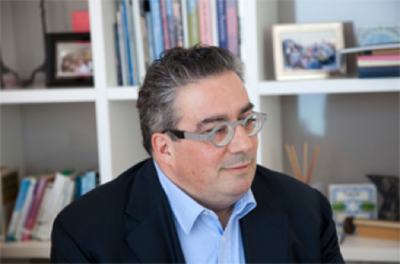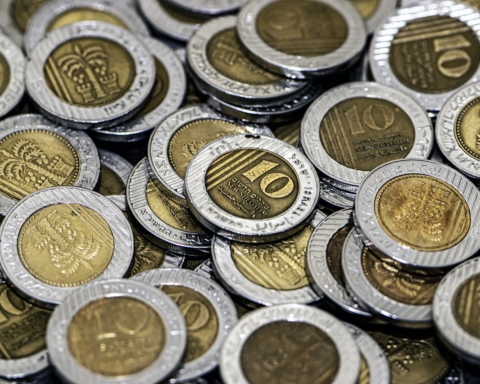
In our new series “More Swissness in Israel” we write monthly about current topics that show the presence and activities of Switzerland in Israel in all of its diversity. A bit of Swiss attitude towards life in Israel.
“Swiss banks in Israel?” Philippe Weil frowns and considers, “I can think of ten Swiss banks here on Rothschild Boulevard alone.” Whether big banks, private banks or asset managers – Philippe Weil, an established Swiss banker and asset manager, who has offices in Tel Aviv and Zurich, knows them all. The banking business for which Switzerland is so famous for however, has changed a lot in its representation in the Jewish state over the last few decades. Until 1998, Israeli citizens were forbidden to deposit money abroad. When this law was repealed, all Swiss banks rushed to Israel.
“Israel is interesting for wealth management, because there is old money here that has been generated over generations, as well as new ‘hi-tech’ money. Traditionally it was the case that the Jews as refugees had a high need for security for their investments and their money, so they deposited in many different countries. Investing in real estate, for example, is relatively new because, according to Jewish experience, real estate can be taken quickly,” explains Weil in his Tel Aviv office with a view of the Mediterranean Sea. However, since 2003 there has been a tax law in Israel that states that all foreign assets must be taxed in the country. More recently, when banking secrecy was lifted in Switzerland in 2017 and the exchange of information between the OECD countries was regulated, even the last Israelis had to declare their Swiss bank accounts and their tax liability.
The original advantage that Swiss banks could offer disappeared and new ways had to be found to convince Israeli customers. Israelis prefer to invest in Israel with Israelis. Philippe Weil knows the reasons why Israelis work with Swiss banks. But he also knows the areas where it didn’t quite work out: “Swiss banks have tried to compete with the local banks and asset managers in Israel as well, but the truth is that Israelis prefer to invest in Israel with Israelis. Swiss banks are particularly popular in the country for international wealth management. There are several reasons for this: Israeli investment advisors have only been active in this sector for a relatively short time, whereas Switzerland has known about money for 200 years. And that is what Switzerland can offer: a safe place for money, a stable currency, a high standard and conservative value retention. An international environment and a lot of know-how, so to speak.”

Philippe J. Weil started his career in 1985 at leading financial institutions in wealth management and private banking in Zurich, New York and Tel Aviv (Image: private).
While Swiss wealth management is of particular interest to the so-called “old economy” in Israel, things are moving in the opposite direction in the hi-tech sector. In the fintech sector, Swiss investors are looking for interesting projects in Israel. The term fintech encompasses all companies that offer innovative, technology-based solutions in the field of finance. “Israel offers the financial world an exceptional ecosystem of entrepreneurship, innovation and novelty. This ecosystem has already produced world market leaders in the field of fintech,” writes the Israeli fintech association “Fintech Community” on its website.
So it’s no wonder that the finance ministers of Israel and Switzerland signed a memorandum five years ago that not only strengthens cooperation in the financial services industry and supports regular financial dialogue between the ministries, but also an agreement between the Swiss financial regulator Finma, the Israel Capital Markets, Insurance and Savings Authority (CMISA) and the Israel Securities and Exchange Commission (ISA) to promote cooperation in the fintech space.
The fintech sector is also an extremely exciting topic for David Biegeleisen, who heads the innovation department at the Swiss Embassy in Tel Aviv: “It was only at the beginning of the year that we held a major webinar with the Peres Center for Peace and Innovation entitled “Green Digital Finance – Bridges between Israel and Switzerland.” Switzerland has comprehensive know-how in the fields of wealth management and sustainable finance, while Israel has one of the most dynamic hi-tech sectors in the world and a variety of start-up ups and VCs littered.
Swiss Green-fintech-Start-ups can learn from the Israeli experiences in the VC sector and Switzerland can share their knowledge about green digital finance.

The reason for this as a particularly hot topic is because a generational shift is underway in the financial sector. Millennials are increasingly trying to invest their wealth sustainably and digitally.
One area, in which Israeli start-ups are extremely active in Switzerland, is around the subject of cryptocurrencies. Many Israeli organizations and companies have received investment through ICOs, another form of cryptocurrency that companies use to raise capital. Through ICO trading platforms, investors receive unique “cryptocurrency tokens” in exchange for their money investment in the company. Switzerland is extremely progressive in this area and, unlike Israel or the USA, quickly initiated a task force that enshrined laws for dealing with this topic. And while it has long been a problem in Israel to exchange cryptocurrencies for cash, Swiss banks make this process uncomplicated – as long as the owner can ensure that it is not money laundering.
But even though in fintech there are huge chances for cooperation between Israel and Switzerland, at least the innovation expert Biegeleisen focuses on other branches in his work: Israeli projects. In the fintech area, we have at least realized that the banking sector still needs a lot of time to innovate. But this topic is definitely top on our list to watch in the next two years.








